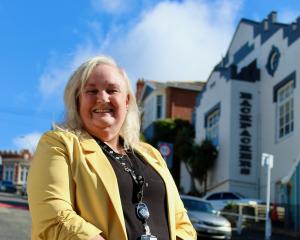The Department of Building and Housing has released a "request for proposal" that covers a wide range of housing needs for people whose homes have been damaged from the earthquakes in September and last month.
The proposals being called for include site management of villages set up specifically to house homeless people, down to providing units such as bathrooms, laundries and bedrooms to people still living in their damaged homes.
Builders spoken to in Dunedin were reluctant to be quoted directly, because of the need for sensitivity about their colleagues dealing daily with the crisis in Christchurch. However, they outlined to the Otago Daily Times some of the problems providing such a large amount of housing - 5000 units immediately, scalable to 10,000 - in such a short time.
Pricing was a major issue, one builder said. It appeared as though the units would be built on demand, adding to the overall cost of each build.
It was unlikely that a builder or manufacturer would be contracted to provide 200 kitchens or 300 two-bedroomed units because of the uncertainty around what was actually needed. People would have varying needs, and that would be ongoing, he said.
Another problem was the fabrication of, say, window units. Aluminium fabricators were reluctant to keep stock on hand as it added to their costs. They usually built on demand once a week after receiving orders on a Monday or Tuesday.
Joinery would also be needed for the units.
Material shortage was another area of concern.
"I don't see how they can build timber-framed units quickly. They will have to look at other options for these types of sleepouts."
Ideally, those options would include suppliers of prefabricated garages. They were usually assembled on concrete slabs, something not easy to remove at the end of the housing project. Steel or wooden floors might be more useful.
It was not a case of making the floor, assembling the wall panels and dropping a roof on it, one builder said.
Somebody had to do the site work, provide the drainage support and the electricity connections for all of the sites and units.
"It's a huge logistical exercise."
The Dunedin City Council economic development unit would contact soon Dunedin construction companies, builders and suppliers to see if they were interested in forming a "construction cluster" to provide some help to Christchurch.
Economic development manager Peter Harris said Dunedin could only provide help if the construction industry acted collectively. He was aware of the sensitivity of the situation, but felt the city had skills it could offer in the rebuilding of Christchurch.
It could take weeks or months to set up a process and establish whether or not there was a gap for Dunedin to fill, he said.
A builder told the ODT that he believed the industry could work together, but that the industry in the city did not want to act until help was requested from their Christchurch colleagues, the Christchurch City Council or the Government.
There was also the problem of what would happen to the units at the end of the rebuilding period as they had to be removed and the sites returned to their original state.










